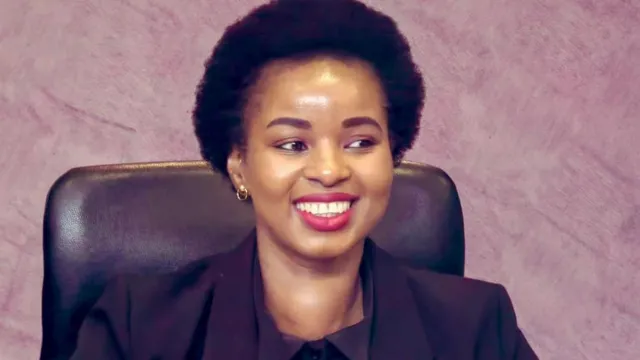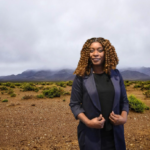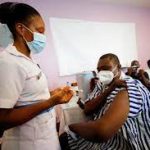By Esther Samson
Senamile Masango, South Africa’s first black female nuclear scientist, has passed away at the age of 37.
The government confirmed her death on Sunday, though the cause is yet to be determined.
Masango, affectionately dubbed “the queen of science” by many in South Africa, was a pioneering figure who inspired numerous young women, particularly from disadvantaged communities, to pursue careers in science.
She was known for her tireless efforts to promote science education and empowerment.
As stated by South Africa’s Department of Science, Technology, and Innovation, “Masango’s tireless efforts to promote science education and empowerment, particularly among women and disadvantaged communities, will be deeply missed.”
Born in 1987 in Nongoma, KwaZulu-Natal, Masango grew up in a polygamous family. Her mother was the youngest of three wives, and despite the challenges this posed, she learned early on to stand up for herself.
Her parents recognized her passion for learning and encouraged her to read extensively. At the age of 11, a geography teacher’s lesson about astronauts ignited her lifelong fascination with science.
“I was so fascinated to learn that there are people who travel to space—leave this dimension—and go to the moon,” she shared with Global Citizen. “That’s when I fell in love with science.”
Masango enrolled at the University of Zululand at 16 to study physics, but after becoming pregnant and failing some modules, she had to drop out.
With the support of her family, she returned to complete her degree and went on to earn an MSc in nuclear physics at the University of the Western Cape, graduating with distinction.
However, her personal life was marked by tragedy when her daughter died in a car crash at the age of seven. Despite this profound loss, Masango continued to push forward, becoming a beacon of hope and inspiration for many.
She later established a foundation dedicated to encouraging young women to pursue careers in science.
Speaking about the barriers women face in the sciences, Masango once said, “Girls are discouraged at an early age from taking science subjects; it is the root cause of the lack of women in the nuclear space.”
Throughout her career, she faced discrimination, particularly as a black woman.
“The biggest challenge in my career is my skin colour. If you look like me, no one believes in you; you must prove that you know your job and that you can think!” she remarked, emphasizing the challenges of being both a woman and a person of color in her field.
“There are still very few black women scientists. This means women like me have to work twice as hard to prove their worth.”
Masango’s remarkable achievements included being named one of South Africa’s most successful black women scientists under 35 in 2019 and earning a place on the Mail & Guardian’s 200 Young South Africans in Science and Technology list.
In 2022, she was honored with the prestigious International Women in Science Award for her significant contributions to the scientific community.





